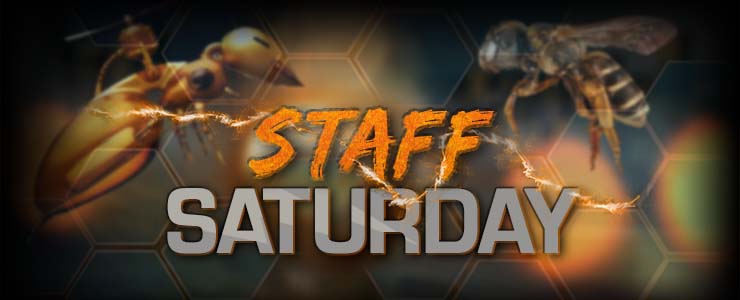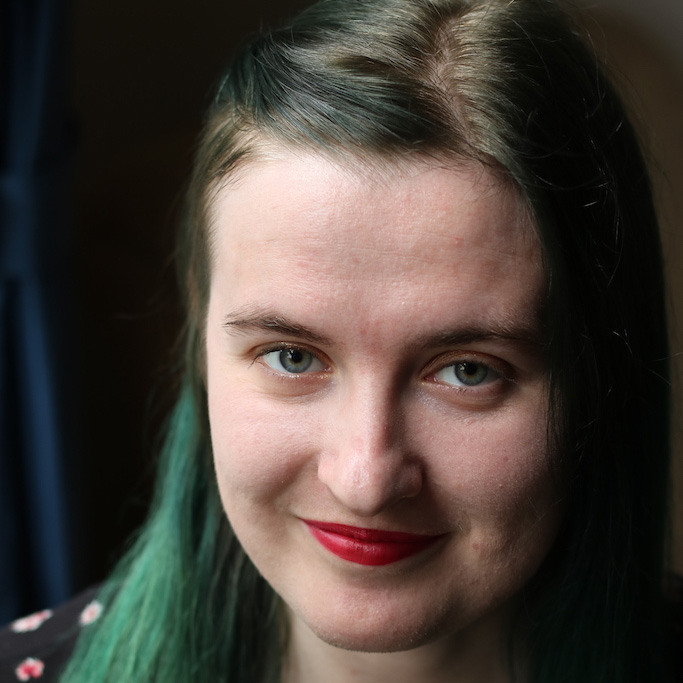By Beka Gremikova
I’m sunning myself on a rock when I hear the shuffle of human feet rubbing against dirt. I swivel my head, and my tongue flickers in and out, detecting sweat, cinnamon, and the heady tang of the flowering bidya that Mamua planted just for me by the front of her hut.
The ground rumbles with movement, sending vibrations along my scales.
Deep voices mutter to one another. Men. The unfamiliar intonations crawl across my scales like bugs. These are not villagers taking a shortcut back to the banana fields, nor youths creeping into the mangroves to hunt.
These men are strangers.
The poison glands in the back of my mouth swell. The last time a strange man found me, back when I did not fear to embrace my human shape… A strangled hiss escapes me. At least as a snake, I thought I’d be safe from the reaching, clawing fingers of men.
But will I ever truly feel safe again?
Perhaps they’re simply here to visit the elders. Perhaps they carry no ill intent. Don’t jump to such evil conclusions. That’s what Mamua’s friends would insist.
The footsteps echo closer, bouncing off the mudbrick wall of Mamua’s hut. The sounds break me from my terrified stupor. I abandon my rock, flattening myself against the ground—
A pair of long, cold shadows block the sun, followed by a man’s deep, jubilant voice. “Urakan Viper,” he whispers, snatching the sack that dangles from his belt. “She’ll get lots of tulus on the market.”
Those words pin me to the spot. Venom poachers.
The second man edges forward, gripping a long stick with a leather strap tied around its end like a noose.
Part of me wants to shift back to human, to scream for Mamua, but she’s far off at the river with the other women washing clothes. She’s tried so often to convince me to come along, but I detest her friends’ pitying stares. I know they ponder whether I’ll ever shift back to human shape or stay a snake forever. I’d much rather stay home with the bidya for company.
The men inch forward. I rise into strike position, fangs bared. My tail rattles like a mountain about to crumble.
The man with the stick pauses, his gaze never straying from me. His fingers tighten around his weapon. Slowly, he moves the stick closer, and its strap looms. I lunge, hissing, my jaw loose and dropping, my fangs dripping poison. The man curses and stumbles backward.
“Hurry up! Catch her!” The deep-voiced man approaches, the sack slung between his hands. “Before the villagers hear!”
The words hit me like a viper’s strike. Before the villagers hear… The bidya. The wailing weeds, first planted by the serpent spirit after a mortal man accosted her, may be my best chance. Even if I bite one of the men, the other might snatch me.
The poachers block my path. I dart forward with a false strike, and the men yelp, jumping aside. The stick man swears and lurches toward me.
I throw myself sideways, avoiding the loop, which brushes past my head.
Before me, the bidya beckons. I race toward its clump of thorny blooms, hoping these strangers won’t recognize the flowers. I glide between the stems and huddle under the fierce crimson petals.
Cursing, the men stomp after me. Their forms waver in my snake-sight and stop in front of the bidya.
“Can you reach her?” the deep-voiced man asks.
“I’ll try.”
But the bush is so large that the man can’t stretch toward me without brushing the petals. The entire plant stiffens, and the petals snarl. Each individual flower on the bush lets out a collective hiss before uttering a piercing screech. The welcome alarm pierces my head. Mamua—everyone—must have heard it on the banks of the river.
The man staggers backward and tumbles to the dirt; the other poacher stands frozen, his eyes wide.
A shout rises in the distance.
The poachers startle, glance at one another, turn to run.
But now more footsteps tear up the earth. A frenzy of deep, familiar voices clutter the village square: the familiar tones of banana farmers and hunters alerted by the bidya. Tongue flicking the air, I poke my head out between leaves.
So many warm shapes cluster together. The villagers surround the men, break their stick, shout at them. The voices blur in my ears, but they’re heavy with rage. The villagers bind the men with ropes and drag them away.
I sit in the cool dark until another set of footsteps ripples along the ground. The light tread darts over rocks and sticks.
Mamua’s bright shape flashes into being before the bush. Her wrap dress tangles around her legs, and her laundry basket is nowhere in sight. She swipes at her sweaty black hair. “Kalkula?” she cries.
My human name. My heart wrenches with the yearning to shift, to hug her with human arms. But I’m not ready to feel so soft and unsafe—not yet. I inch out from under the flowers. Clutching her chest, Mamua gives a deep sob, drops to her knees, and holds out a hand. I slither up her arm to nestle against her neck. Her tears drip onto my scales.
“I heard the bidya,” she whispers, voice choked.
My tongue flicks three times against her skin in our secret code. Unharmed.
“I’m so sorry, dear one.” Her body trembles, and her deep mountain accent thickens. “I wish… I wish I could be here more. I wish I could protect you from everything.”
I coil around her shoulders, my tongue brushing her cheek again. You do protect me. Perhaps not from everything—after all, Mamua cannot always be here. But she has provided me with a refuge in the bidya, and she loves me whether I be snake or girl.
It’s enough to make me hope that one day, I may feel truly safe once more.



 (11 votes, average: 2.82 out of 3)
(11 votes, average: 2.82 out of 3)




Such a powerful metaphor. I was so happy to see her community unite to protect her at the end!
Amazing story as always, Beka! <3
interesting flora and fauna, all working together.
Excellent description of the girl as a snake! Beautiful story!
Oh my gosh this was amazing 😭💕😭 one of my favorites you’ve written, fren. I love the subject matter 💕
You’ve constructed many layers here and packed a powerful punch in a short story. Very moving.
That was both vivid and exciting. Well done!
And, I’ve always loved the idea of screaming plants. So that part was really cool!
This was such a beautiful, heart-wrenching story, Beka! ♥ The emotion, the meaning– it was really powerful. One of my favorites that you’ve written!